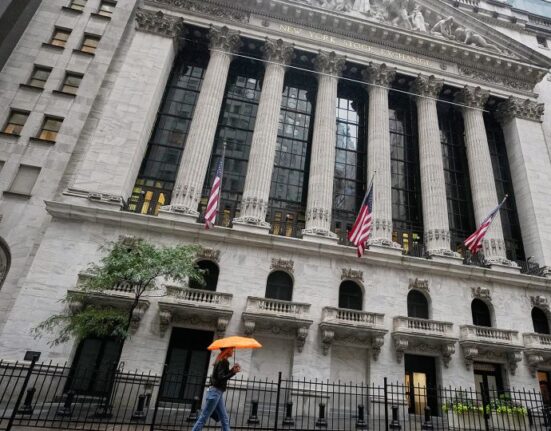-
CoreWeave’s rapid growth has thrust it into the center of a growing debate about an AI bubble.
-
In July, the company reached a deal to buy a rival that would accelerate its growth and cut costs.
-
The merger, one of the sector’s biggest this year, is now uncertain as shareholders voice opposition.
A large shareholder in Core Scientific, a data center developer and operator, said he would reject a proposed purchase of the company by the rival data center firm CoreWeave in an upcoming shareholder vote.
“Under the math of the deal today, I would have to vote no,” Trip Miller, the founder of the investment firm Gullane Capital, told Business Insider on Friday afternoon.
Gullane, based in Memphis, Tennessee, is the third-largest shareholder in Core Scientific, behind Vanguard and BlackRock, and owns a stake in the company worth about $200 million.
Miller’s opposition adds to other recent pushback against the deal, casting doubt on one of the year’s largest data center mergers. CoreWeave — the AI cloud darling racing to scale its computing power — needs the roughly $5 billion takeover to help it continue to grow rapidly and also cut billions of dollars in soaring costs.
But a dip in its stock price has weakened the offer’s value, exacerbating investor concerns that the deal sharply undervalues Core Scientific just weeks before shareholders are set to vote on the transaction.
On October 14, Two Seas Capital, another investment firm that owns about 6.3% of Core Scientific’s stock, published a lengthy presentation that outlined its myriad objections to the takeover, including that it was not profitable enough for stock owners. The firm urged investors to reject it in the upcoming shareholder vote on October 30.
In response, the CEO of the Livingston, New Jersey-based CoreWeave said the acquisition was “the most compelling path forward for Core Scientific stockholders” and that the present deal would be its “best and final” offer for the company.
“The combination will offer Core Scientific and CoreWeave stockholders the opportunity to benefit from the tremendous upside potential and long-term value creation driven by greater verticalization,” Michael Intrator, CoreWeave’s CEO, wrote in a letter published on October 16.
The intrator said the complaints from Two Seas Capital were “misleading and misinformed.”
CoreWeave’s rapid, debt-fueled growth has thrust it into the center of a growing debate over whether AI speculation has become a bubble or if early movers like it are seizing on a historic investment opportunity.
-
CoreWeave’s rapid growth has thrust it into the center of a growing debate about an AI bubble.
-
In July, the company reached a deal to buy a rival that would accelerate its growth and cut costs.
-
The merger, one of the sector’s biggest this year, is now uncertain as shareholders voice opposition.
A large shareholder in Core Scientific, a data center developer and operator, said he would reject a proposed purchase of the company by the rival data center firm CoreWeave in an upcoming shareholder vote.
“Under the math of the deal today, I would have to vote no,” Trip Miller, the founder of the investment firm Gullane Capital, told Business Insider on Friday afternoon.
Gullane, based in Memphis, Tennessee, is the third-largest shareholder in Core Scientific, behind Vanguard and BlackRock, and owns a stake in the company worth about $200 million.
Miller’s opposition adds to other recent pushback against the deal, casting doubt on one of the year’s largest data center mergers. CoreWeave — the AI cloud darling racing to scale its computing power — needs the roughly $5 billion takeover to help it continue to grow rapidly and also cut billions of dollars in soaring costs.
But a dip in its stock price has weakened the offer’s value, exacerbating investor concerns that the deal sharply undervalues Core Scientific just weeks before shareholders are set to vote on the transaction.
On October 14, Two Seas Capital, another investment firm that owns about 6.3% of Core Scientific’s stock, published a lengthy presentation that outlined its myriad objections to the takeover, including that it was not profitable enough for stock owners. The firm urged investors to reject it in the upcoming shareholder vote on October 30.
In response, the CEO of the Livingston, New Jersey-based CoreWeave said the acquisition was “the most compelling path forward for Core Scientific stockholders” and that the present deal would be its “best and final” offer for the company.
“The combination will offer Core Scientific and CoreWeave stockholders the opportunity to benefit from the tremendous upside potential and long-term value creation driven by greater verticalization,” Michael Intrator, CoreWeave’s CEO, wrote in a letter published on October 16.
The intrator said the complaints from Two Seas Capital were “misleading and misinformed.”
CoreWeave’s rapid, debt-fueled growth has thrust it into the center of a growing debate over whether AI speculation has become a bubble or if early movers like it are seizing on a historic investment opportunity.







Leave feedback about this